A Visit to the School of Practical Philosophy
Mark Honeychurch - 27th May 2024
On Saturday (the 25th of May), our chair Bronwyn, long-time skeptic Tim Atkin and myself visited Practical Philosophy and Meditation, a group running out of a very nice building at the bottom of Aro Street in Aro Valley, Wellington. We were going there because, despite outwardly looking like an educational institution (until very recently the Wellington branch had been called the School of Practical Philosophy), a little investigation shows that the group runs “schools” around the world in a curiously cult-like fashion, offering cheap philosophy courses as the hook to attract adherents who can then be convinced to pour their money, time and devotion into the group.
Not wanting to pay $150 to experience one of these courses, when we found out there was an Open Day that could be visited for free we decided it was time to pay a visit. And so, at the ungodly hour of 10am on a Saturday (I believe my weekends are for sleeping, not doing things), we met at the entrance gate to the school and wandered up its many stairs to the front door.
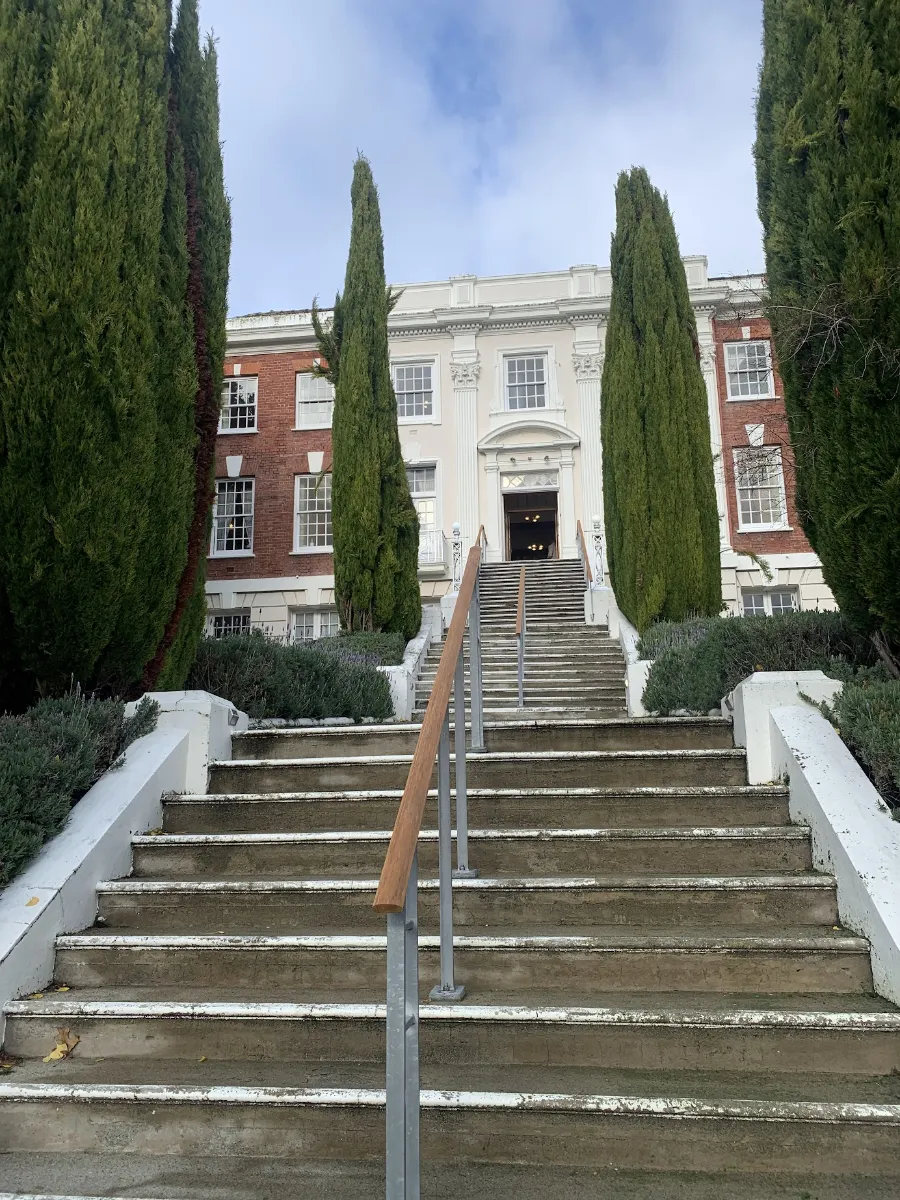
At both the bottom and top of the stairs we were greeted by Hosts, wearing badges declaring their host status, who had pamphlets to give us. One pamphlet told us what the events of the day were, while another gave us some details of the first of the five $150 courses they offer to new members (the courses are titled Wisdom, Happiness, Love, Presence and Freedom, and a major part of the Open Day felt like it was focused on getting people to sign up to the first of these courses). There was also a large glass bowl of daily words that we could dip into and take one of - phrases from popular authors or holy books that were supposed to be profound. I ended up pulling out a quote from T.S. Eliot:
The circle of our understanding Is a very restricted area.
Except for a limited number Of strictly practical purposes
We do not know what we are doing;
And even then, when you think of it,
We do not know much about thinking.
Quotes like this could be found all around the building, on laminated sheets of A4, posters, pieces of art and more. The group seems to have an affinity for people who had a knack for being quotable, like Ralph Waldo Emerson and Shakespeare, as well as spiritual “thought leaders” like Deepak Chopra and Eckarte Tolle. And, of course, they also seemed to find wisdom in holy books - there wasn’t much discrimination here, the Bible, Bhagavad Gita, Tao de Ching, and more were fair game to quote from.
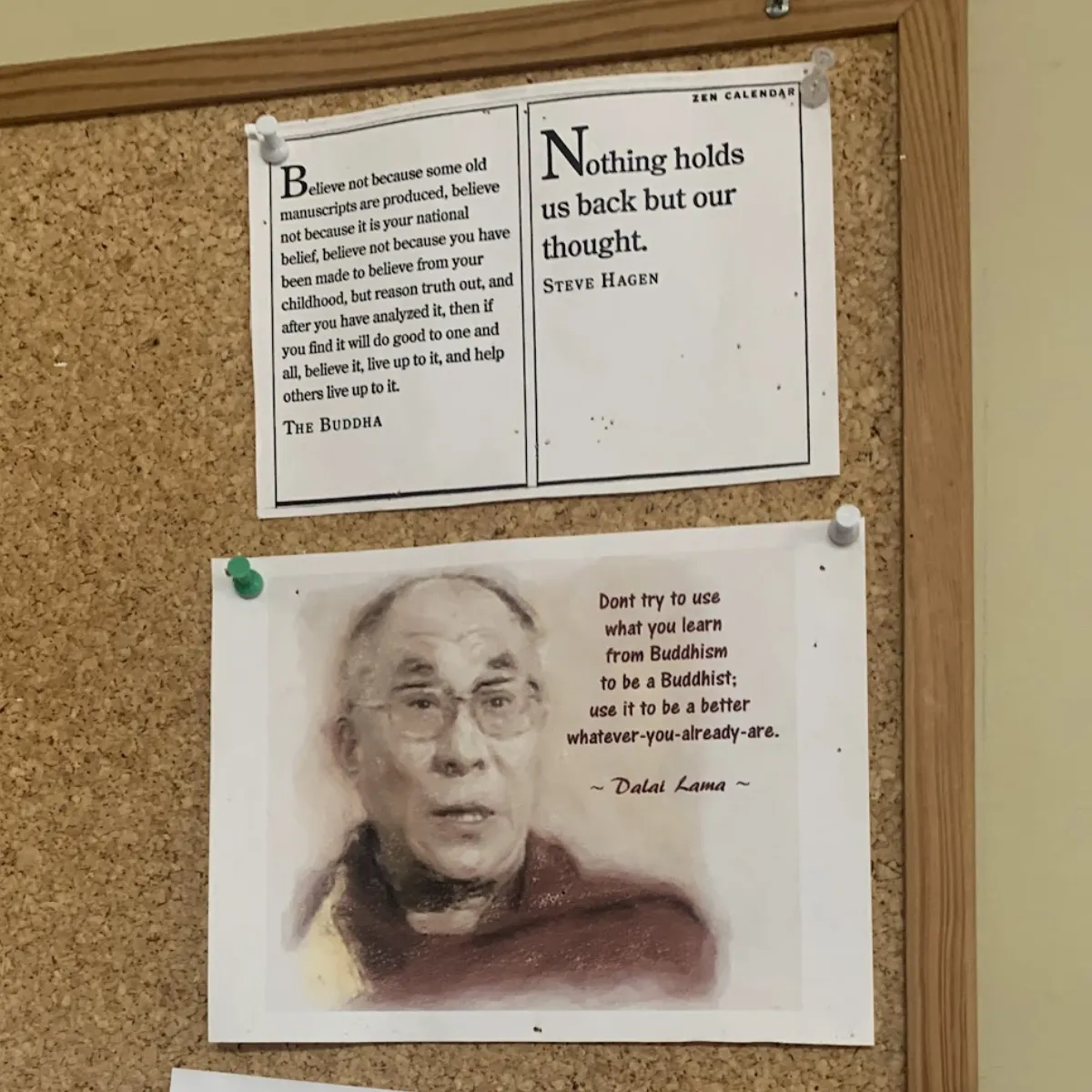
One particular focus of the group is on learning Sanskrit, and there was a teaching room upstairs in the building dedicated to Sanskrit. Like most of the teaching rooms in the building, the Sanskrit room had an antiquated easel and chalkboard.
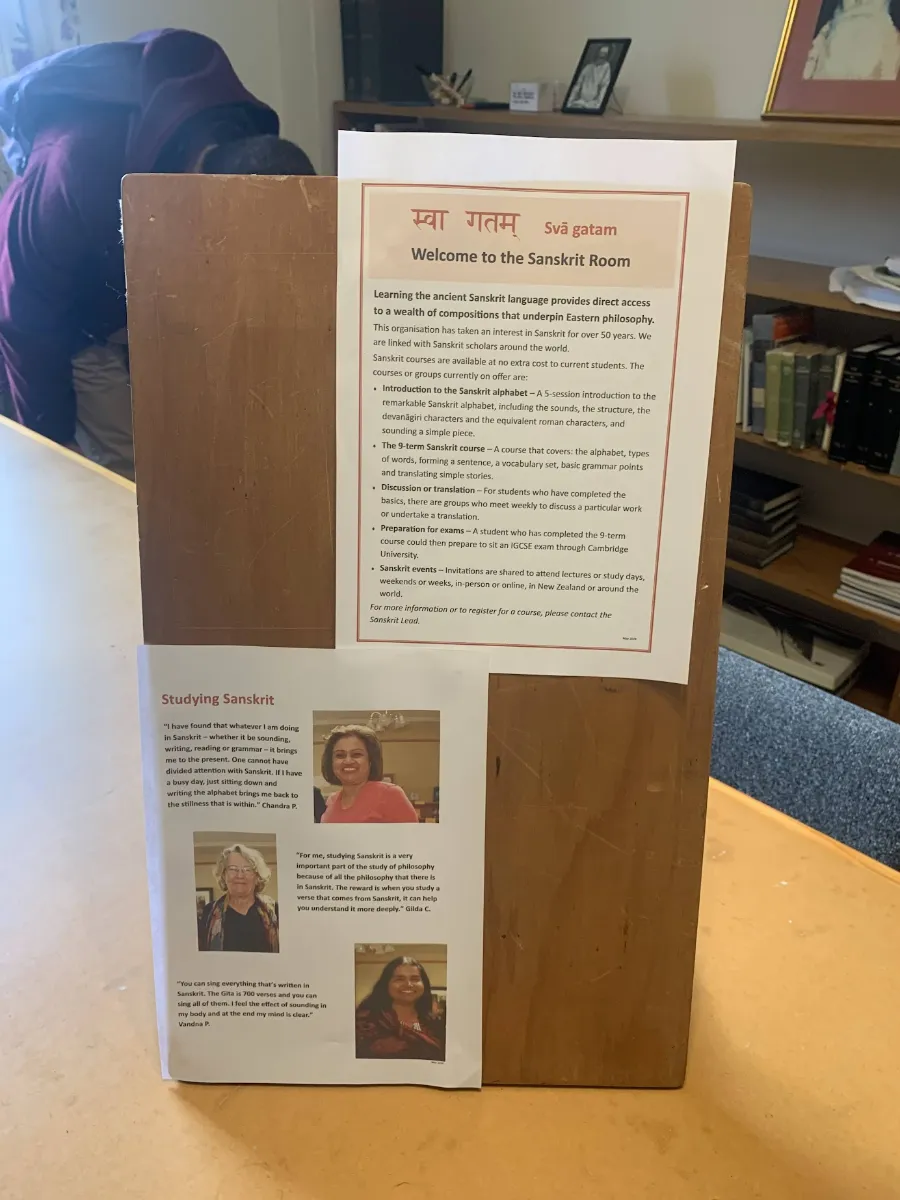
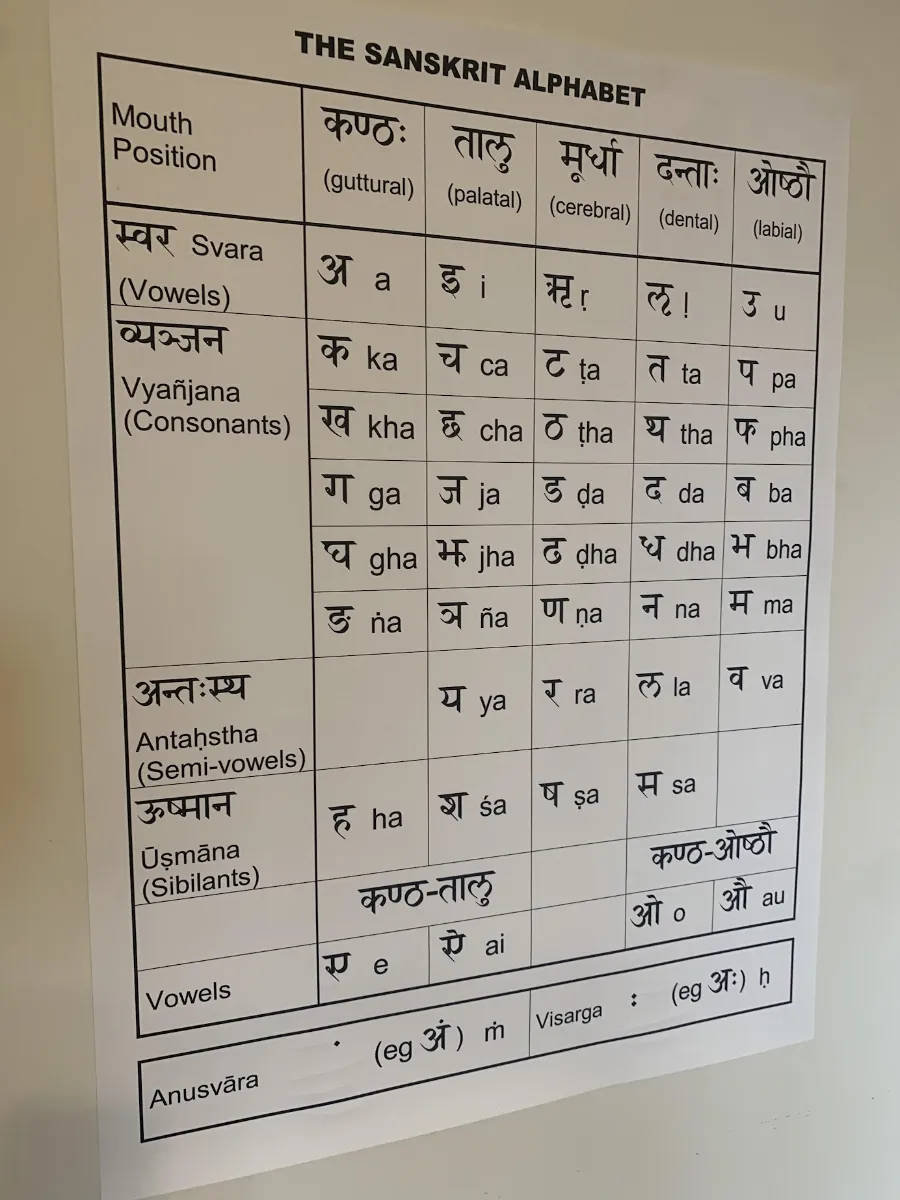
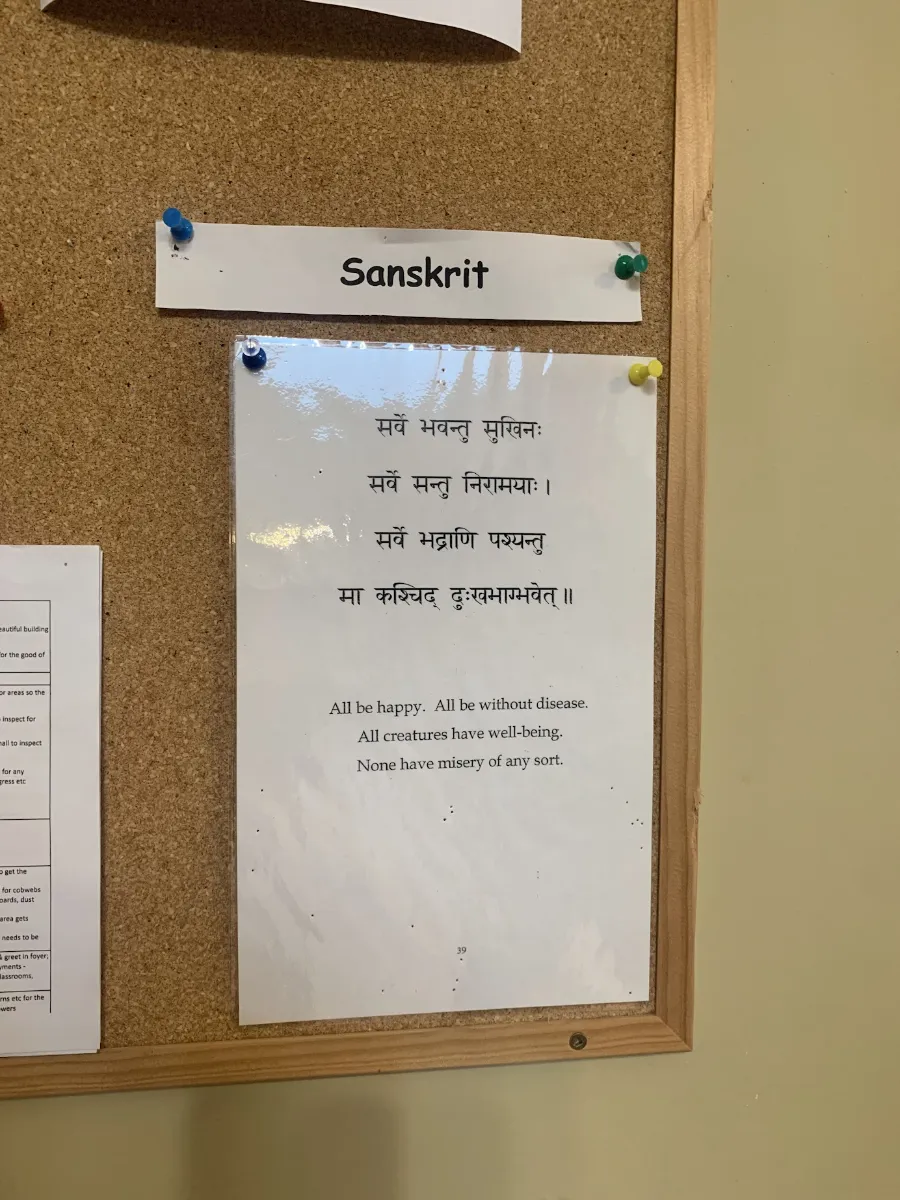
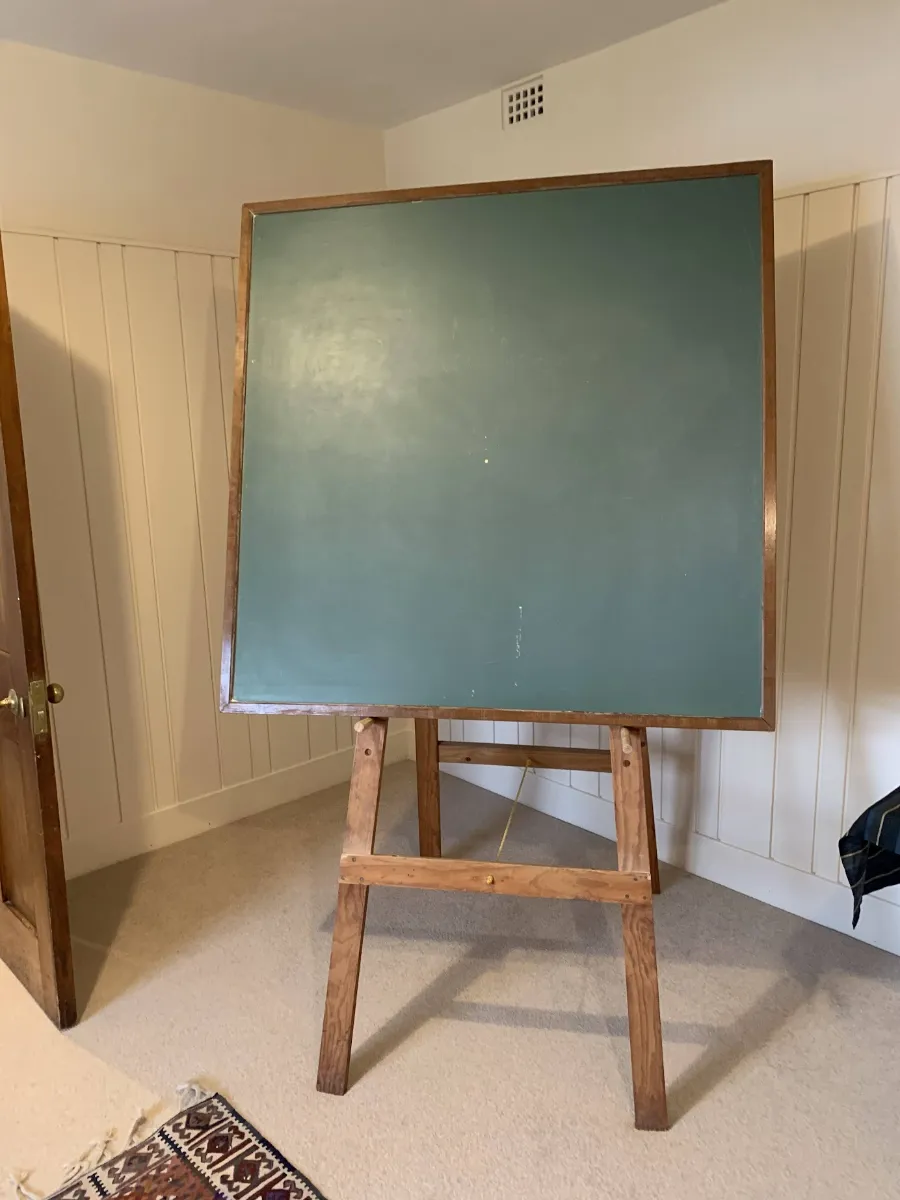
Before having a look around the building, we headed to the cafeteria to help ourselves to free tea, coffee and snacks! The room, like much of the building, had a real feeling of days gone by, with lots of wood details and old carpet, as well as a table filled with books from what the group seems to consider spiritual luminaries. From there, we headed to the first of the three free sessions that were on offer - “Introduction to the School ad [sic] the Part One course”:
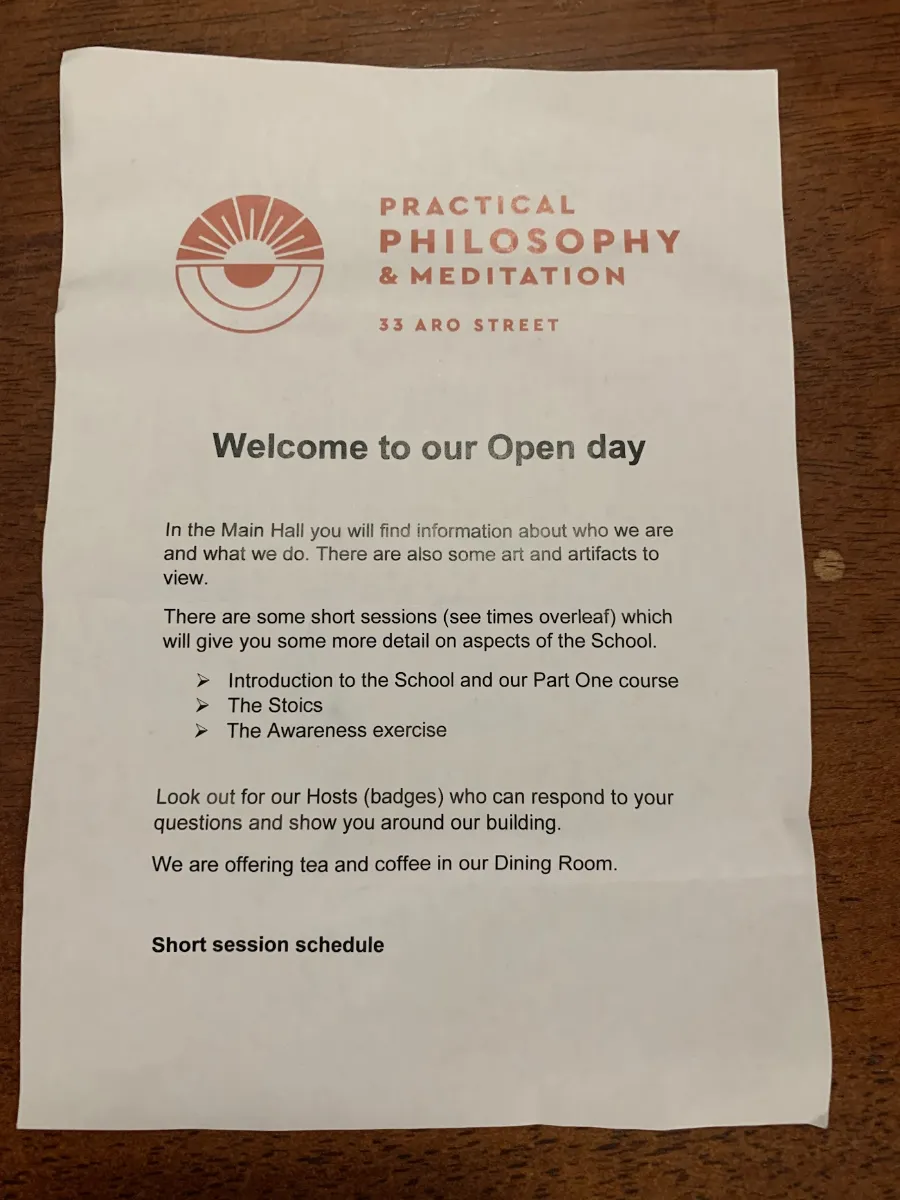
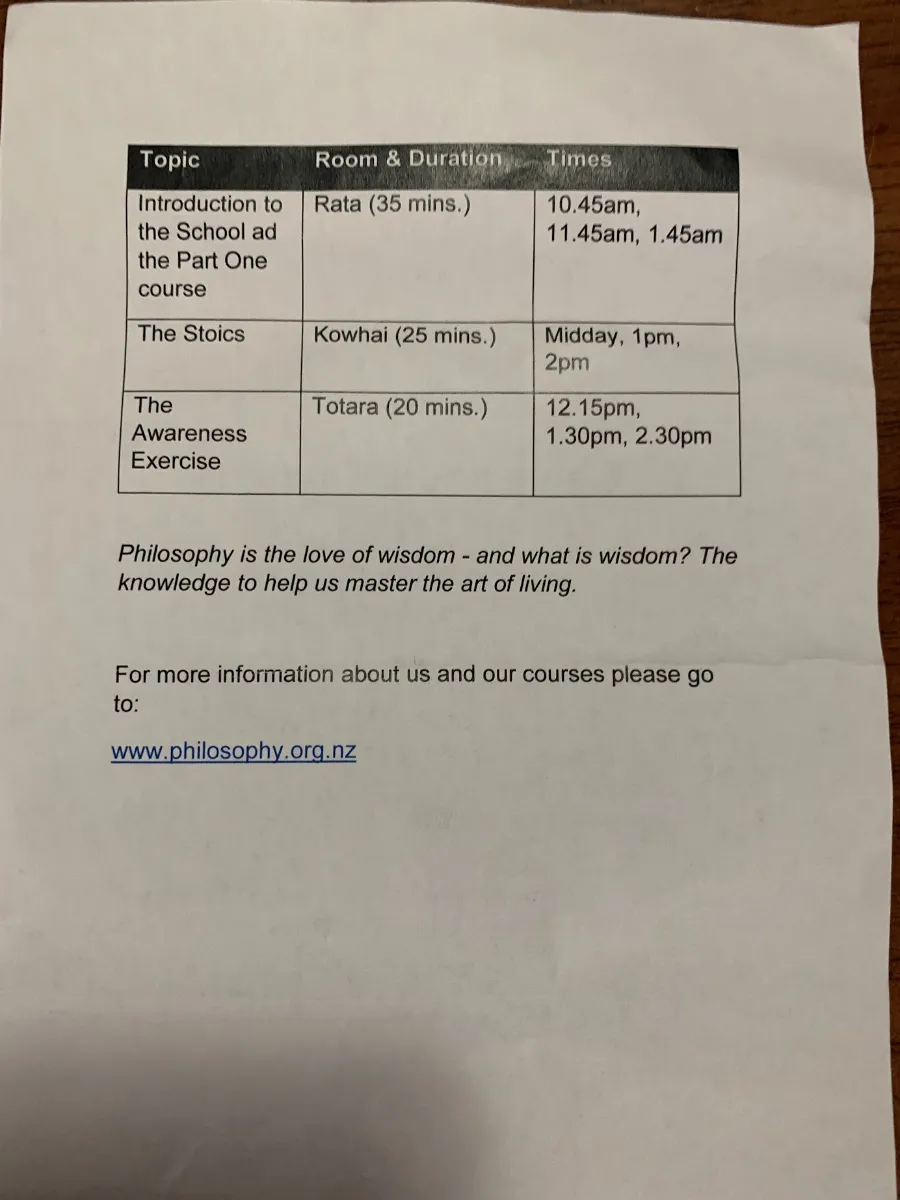
For just over half an hour, we listened to a disinterested member of the School of Philosophy talk about the contents of the level one course and why we should sign up for it - the presentation consisted of a set of slides, along with the presenter reading out the information on the slides, and some information from her accompanying speaker’s notes, and occasionally going off-script and adding a personal anecdote or two. As well us us three skeptics, there were a couple in the room who, despite acting like they were newcomers, had the distinct air of being familiar with both the building and the people in it - I don’t want to go as far as accusing them of being “plants”, but I have a suspicion that at the very least they have already completed one or more of the school’s courses, and that they were there to help the school look busy. Unlike the dozen or so established members we saw that day (all with a “Host” badge on), there was no external indication that this couple were connected to the school outside of how they acted. There was also an elderly Asian gentleman who seemed more interested in the artworks around the building than the content of their lectures.
After we left the first class, we tried to figure out what to do next. For people who claim they are interested in thinking deeply, we realised fairly quickly that nobody had really thought very hard about the timings of the day’s courses. It was another 40 minutes until the next session, on the Stoics (at midday), but as that lesson was 25 minutes long, if we joined it we’d miss the Awareness Exercise at 12:15pm and have to wait until 1:30pm for the next session. After a bit of brainstorming we decided to have a quick look around the building, before heading out for some lunch at 12 and returning at 1pm for the second Stoics session, followed by the 1:30pm Awareness Exercise - giving us 5 minutes to walk down the hallway between rooms.
Walking around the building, we saw some interesting places - Lots of artwork based on Eastern mysticism, and little touches that looked 50 or more years old. As it was originally built and owned by the Salvation Army as a training facility for their “cadets”, and as such much of the building was, and still is, geared towards being accommodation - separate male and female shower and toilet blocks in the basement, and two parallel corridors of dormitory rooms upstairs on the first floor - with lots of small classrooms around a large central meeting room on the ground floor. Tim suggested that it might even make a good venue for one of our future conferences, so maybe we’ll reach out to them in 2026 or 2027 when we next host it here in Wellington.
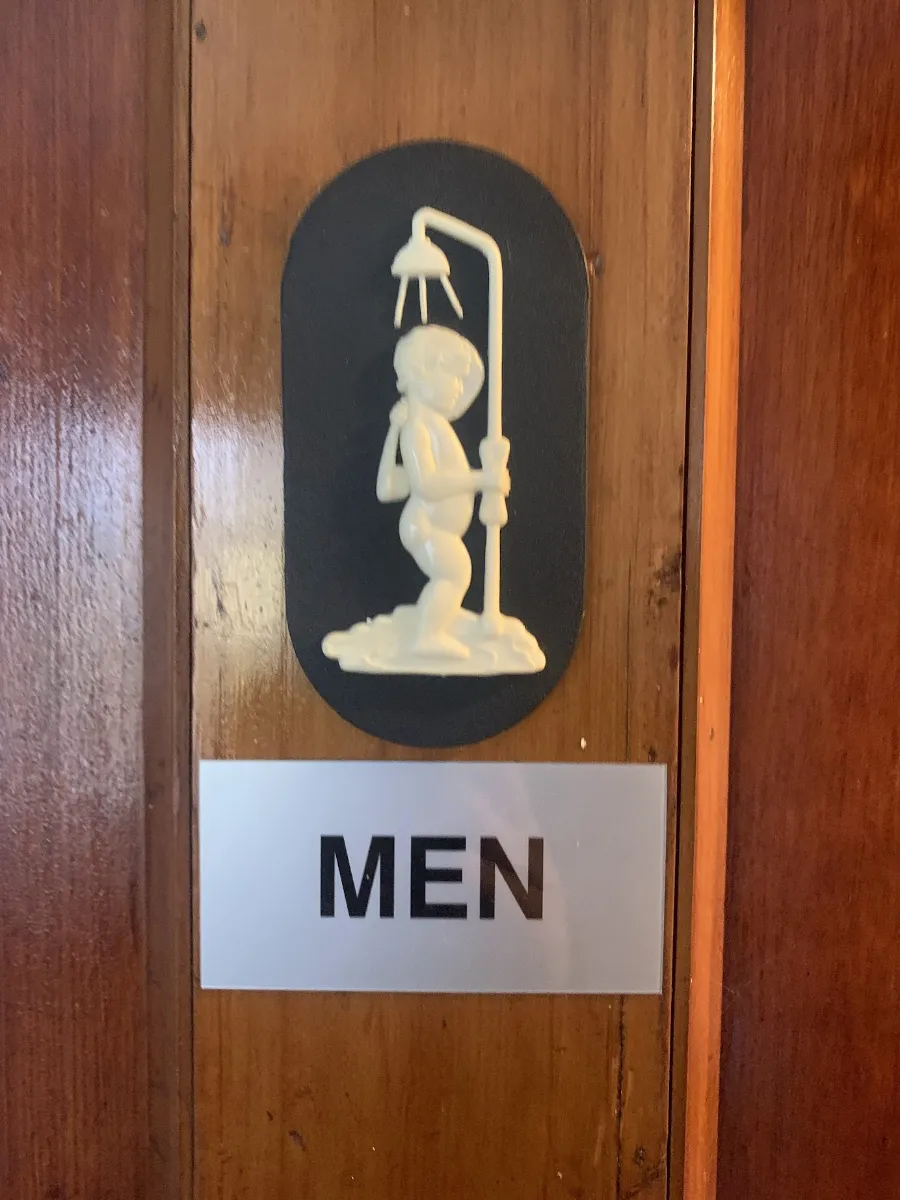
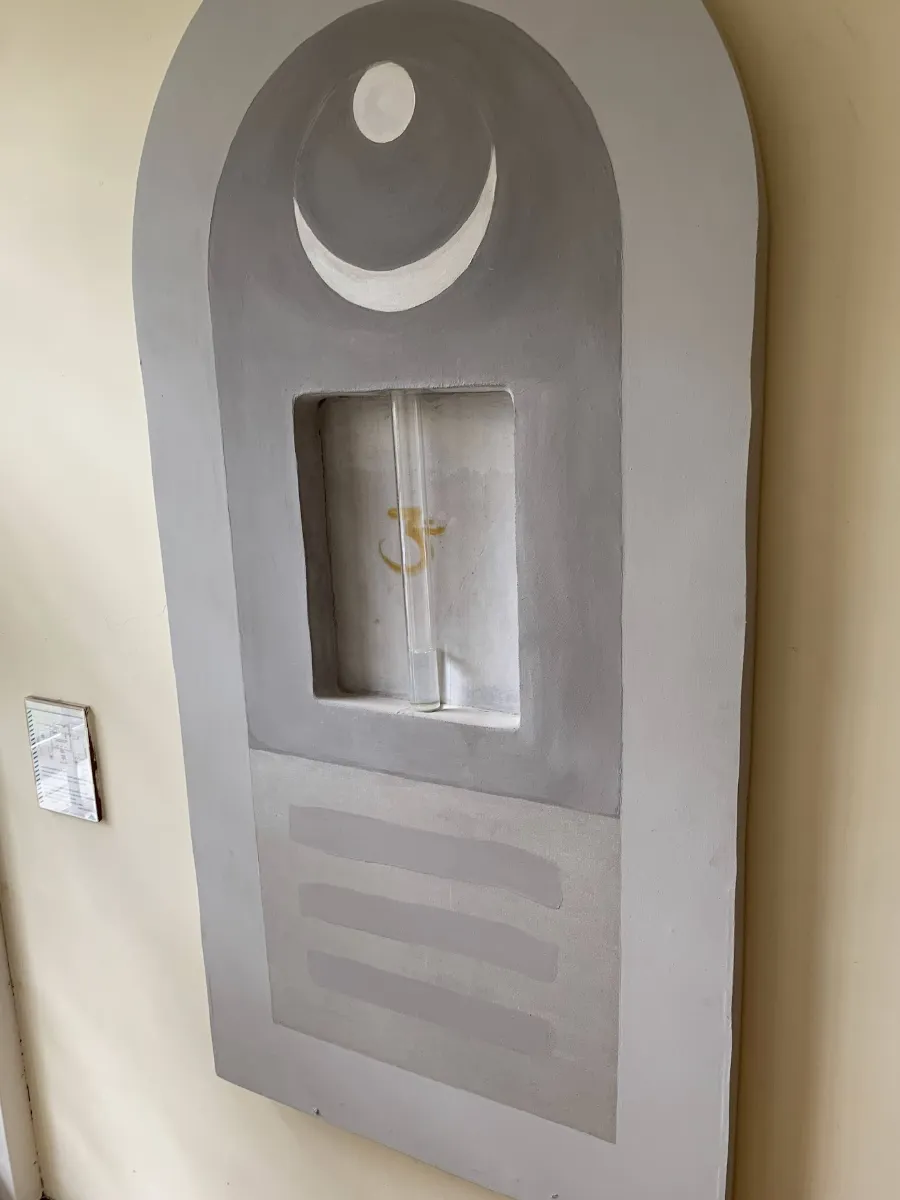
After we came back from our lunch (Taste of Home - I highly recommend it if you’re in Wellington!), we stepped straight into the 1pm Stoics session. In the session we were guided through picking quotes from a pre-prepared list of Marcus Aurelius text “Meditations”. Apparently he was a stoic, and we were asked to choose some of these quotes to talk about as a group.
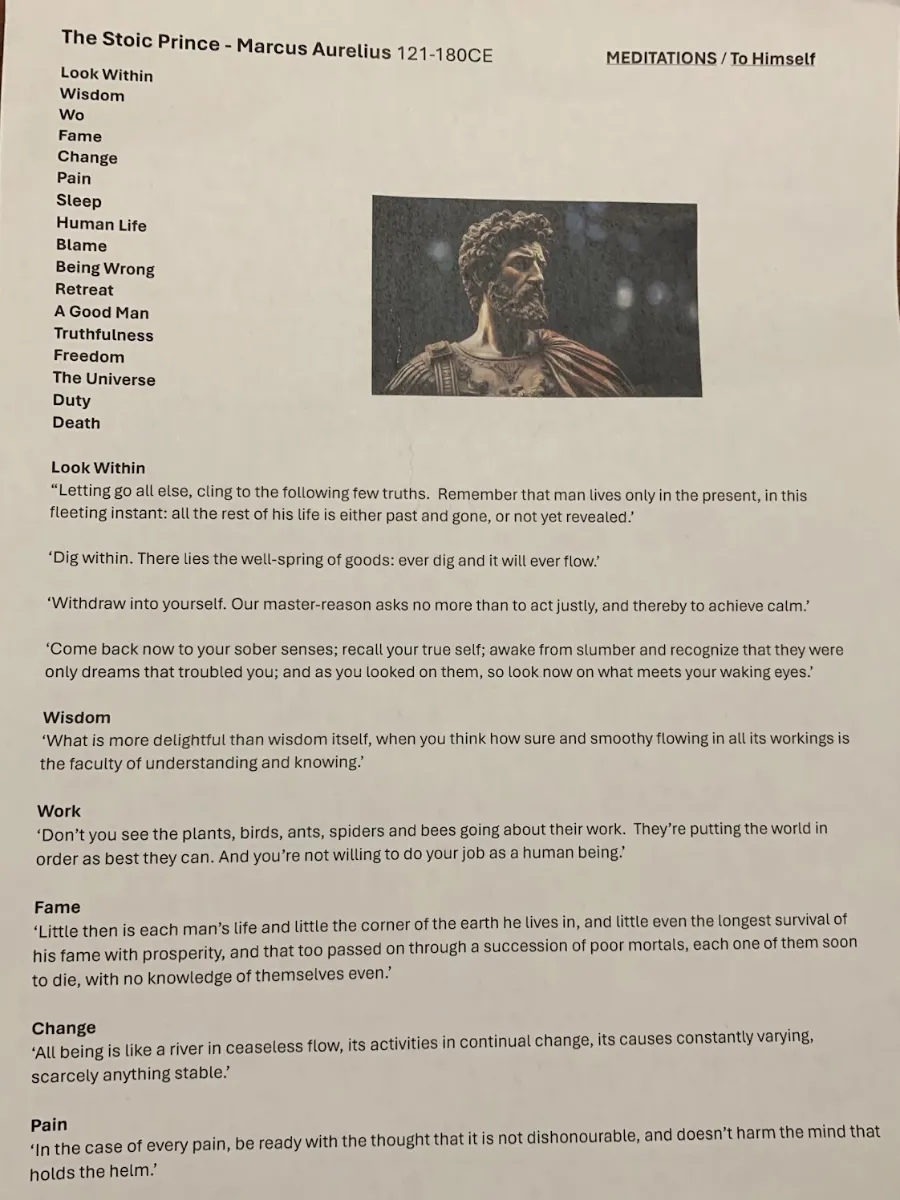
In the class there was one Host, the couple from earlier that I suspected weren’t new to the organisation, and a fellow countrywoman from the UK who seems to have travelled to New Zealand recently. Through talking about what some of the passages meant, we were introduced to the four tenets of stoicism, Wisdom, Fortitude, Justice and Self-Control.
Sadly, the class overran by almost 10 minutes, and so our carefully laid plans to get to the Awareness Exercise in time were scuppered. However, I was not going to be deterred, and led the charge to our last session of the day so that we could get out of there and have our regular “debrief” at the pub. We entered the classroom nearly ten minutes late, and sat down near two others who had already joined, and who both seemed like the shy type. The leader for this session, a soft-spoken Scotsman who told us he worked for the Citizens’ Advice Bureau as a Budget Advisor. He was kind enough to restart the session for us from the beginning, giving us a little bit of background about the school and the Exercise we were about to be a part of.
The Awareness Exercise is something I’ve done a few times before with different spiritual groups, so there was nothing overly special or interesting about it. Our leader basically had us sit upright in our seats with our hands by our sides, and slowly talked us through focusing on different parts of our body - starting off with our feet, and working our way up until we reached our ears and we were asked to try to listen to the faintest, most distant sounds we could perceive. Here’s a copy of the meditation text that I found online:
_First, find a balanced position of the body …
Let the mind be free of any concern or pre-occupation …
Let the body be still …
Be aware of where you are now …
Feel the touch of your feet on the ground …
The weight of the body on the chair …
Feel the touch of the clothes on the skin …
Feel the air on the face …
If they are open, let the eyes receive colour and form without any comment …
Be aware of the sense of smell …
And the sense of taste …
Be fully here …
Now be aware of hearing …
Let sounds come and go without any comment …
Let the hearing extend right out to the furthest and gentlest sounds, embracing them all …
Simply rest in this awareness for a few moments._
This is nice to do for a few minutes, and I suppose it might actually be of some material, measurable benefit to some people, but for me it seems like one of those ideas that looks deep and meaningful from the outside, but in retrospect doesn’t actually live up to its hype. After the exercise, he recommended a video of the Exercise from the Irish School of Philosophy, which I think is this one:
We then had question time, in which Bronwyn asked a revealing question - she’d noticed that the local Wellington group seems to have recently gone through a name change, from the “School of Practical Philosophy” to “Practical Philosophy and Meditation”, and asked why this was the case. We were told that the organisation had been suffering from low attendance in recent years, and that after much discussion amongst the members it was decided that “meditation” was a new and fresh thing that people were interested in (personally I think they’ve missed the boat here by 30 or 50 years!), and that the word “school” could be off-putting, as it made people think of classwork and struggles with learning.
After the Q&A we had one last quick look around some of the areas of the building we’d skipped before lunch, like the upstairs dorms, and then headed to the nearby Garage Project bar for a debrief.
This might be a little harsh, but as we were talking in the pub I wondered if groups like the School of Practical Philosophy give people with mundane or unfulfilling lives the feeling that they’re important and powerful. In the real world they may be working in an unexciting job, but during Philosophy class they get to be the one who holds the power and the knowledge. You don’t need to study real philosophy at a university when you can have a simplified version, mixed with Indian religious beliefs and feel-good quotes, fed to you in a very simplistic, easy to digest format. I certainly think that for organisations like Scientology the draw of being able to become a powerful person within the microcosm of the organisation is a powerful one, and it strikes me that, in a much more benign way, the same thing might be happening at the School of Practical Philosophy. After I’d voiced my concerns, I then considered groups like ours, the Skeptics. Are people like me also guilty of being attracted to these groups because we can be someone important, a big fish in our small goldfish bowl of skepticism. I don’t think that’s my motivation, or that of any of our current committee members, but I guess I can never be sure! Anyway, enough introspection…
One thing that hit me during our visit, as it usually does at these kinds of events, is concern about the other people who are there visiting. As skeptics, there’s very little chance that we’re going to find ourselves swept off our feet and taken in by the veneer of academic rigour. But, given this group’s history, and its apparent ability to convince people to hand over large sums of money and dedicate thousands of hours of their time for free, I feel real concern that the genuine visitors we see at these kinds of events, who are honestly searching for answers, may end up getting stuck in a group like this and, in the long run, suffering as a result. I often feel I want to take them aside and let them know of the dark side of these groups, but very rarely do I act on this (with the exception maybe of the time I worked for Scientology, handing out NarcoNon leaflets, and letting people know it was nonsense as I did it). Let’s hope that God, or maybe the School of Philosophy’s guru Shankaracharya, judges me kindly for my inaction on the weekend, when I arrive at the Pearly Gates.